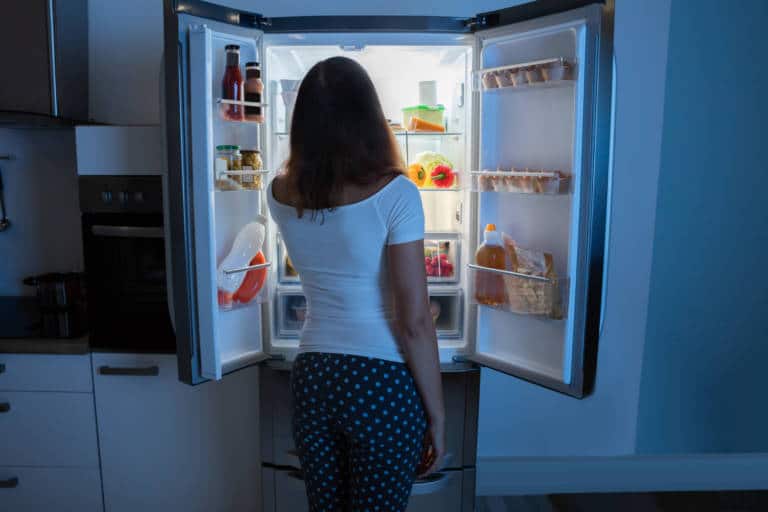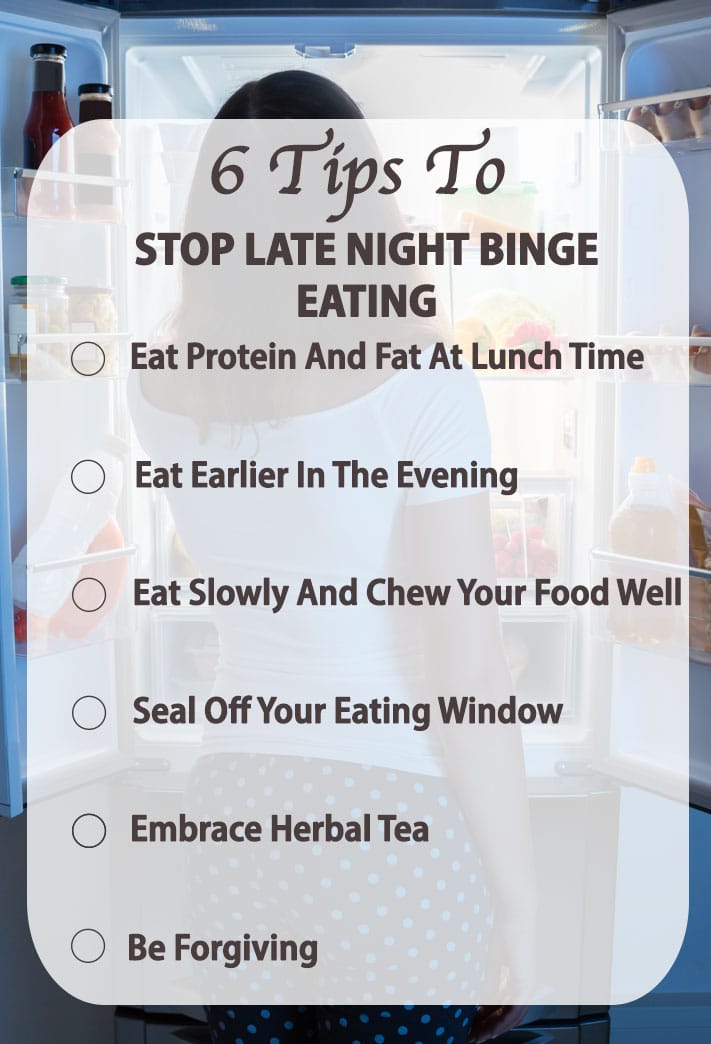

Most of us get the main idea when taking on a healthy eating plan. With all the best intentions, some go as far as planning out meals, doing the big shop, clearing out the cupboards, and filling up the fridge.
Getting the basics in play is absolutely essential, but for many, an awkward elephant remains in the room. The elephant pointing out whether or not we will actually follow through with our good intentions.
Even among the most intellectual, deep-rooted unhealthy eating habits leading to uncontrollable overeating is not uncommon.
Especially under the cloak of night and in the privacy of one’s own home, a few treats combined with a stressful day can easily snowball toward binge eating or drinking.
You’re certainly not alone when feelings of immense grief and anxiety lead to the despairing sight of an entire day’s healthy eating unwind.
It’s time to start talking about the elephant and guide it out of your living room. Here are a few strategies to overcome late night binge eating. Consider starting with these top tips.
Often irrational food cravings, and the inability to stop eating despite having all the best intentions come from true physiological and biochemical drivers. Unbalanced, stressful, and chaotic eating patterns can send feedback messages to our internal appetite regulating circuits.
If our brain thinks were in danger or approaching famine, it lets out a starvation response to ensure we have adequate nutrition on board.
Eating under pressure, eating too quickly, skipping meals, and grazing over the day all have the potential to wreak havoc on your blood sugar levels and elicit a stress response.
The first place to start for anyone with unstructured eating patterns is in looking at meal balance and sensible eating patterns.
Take a look back at your eating day leading up to episodes of uncontrolled eating and see if any of your meals were in any way imbalanced.
While everyone will vary on their specific needs, aim to include a balance of whole food sourced protein, healthy fat, and carbs in each meal.
A balanced whole food meal should keep you satiated for at least 2 hours. If your meals are leaving you hungry soon after eating, consider adding healthy fat and/or protein to make the meal more satiating without affecting your blood sugar levels.
Eating a whole food balanced dinner earlier in the evening can help to nip pre-dinner snacking in the bud.
The other benefit of eating earlier is in not letting yourself become starving in the period leading up to a late-night dinner.
Waiting until you’re starving hungry in an attempt to skimp on calories over the day can play against you.
If you’re overly hungry, you’re less likely to be adequately satisfied with dinner and more likely to reach for post-dinner snacks or sides.
Eating slowly and mindfully ties into the previous concept of sitting down to a balanced family-style dinner.
It takes time for food to digest and for the body to realize that we’ve eaten a meal. Eating slowly is about allowing the time for your brain and body to connect.
It gives your body a chance to acknowledge that you’ve had a decent satisfying meal.
Use the family-style dinner experience as a tool to acknowledge that you’re meal is a satiating and nourishing.
Take your time to enjoy your food and chew properly. This helps to turn on more effective digestion processes leading to better nutrient extraction from your food and promotes satiety.
Stopping late night snacking has to come as an intentional choice. It can be too easy to talk oneself into just a little mouthful which can lead to multiple revisits to the kitchen.
Choose to stop. Decide on a realistic time that you will not put anything further into your mouth.
This a called an eating window.
Aim to seal off your eating window at a similar time each night with a ritualistic practice such as cleaning your teeth or brewing a pot of tea.
Key is in being purposeful about your choice to not snack on anything beyond this point.
Skipping some extra snacks will initially feel uncomfortable. However, it’s not a punishment, so don’t let it feel that way.

Brew your evening tea in a pretty pot with a flash mug to match. There’s no shame is being a tea lover.
It’s not easy to totally change strongly ingrained eating habits. Mindful eating is not a technique or skill, but it’s a process of learning to engage with what your body really needs.
Set realistic goals and celebrate achievements. Make the days on a calendar that you managed to conquer late night mindful eating.
Celebrate your progress as you go and challenge yourself to see how many consecutive days you can achieve on your mindful eating mission.

